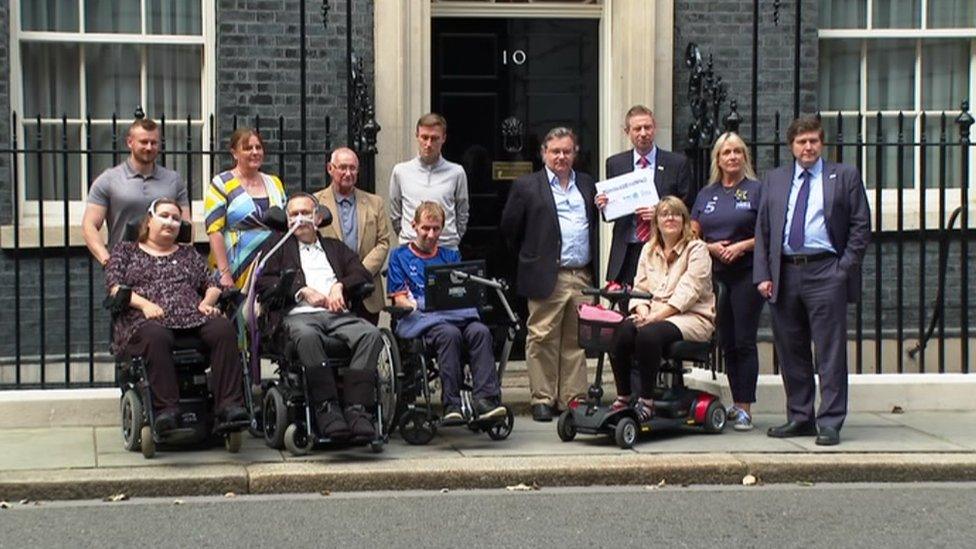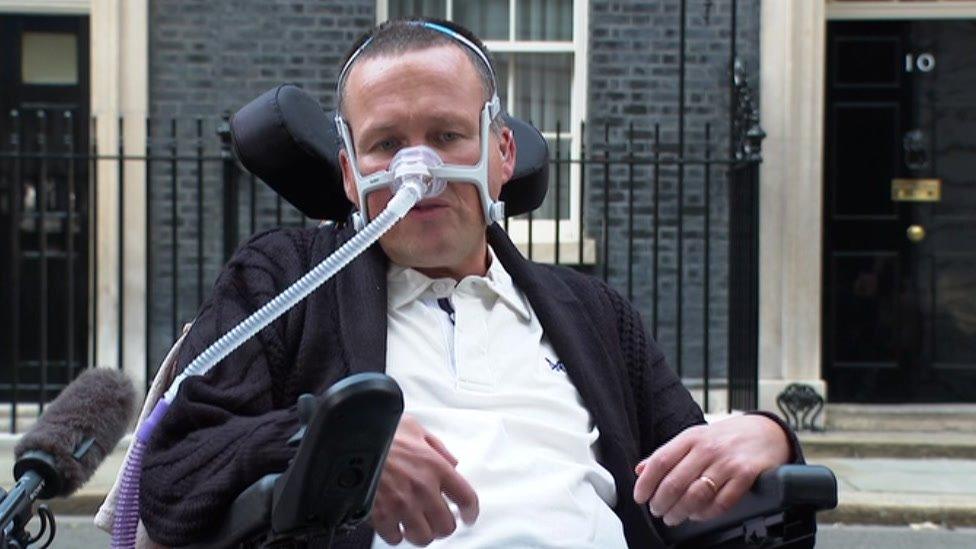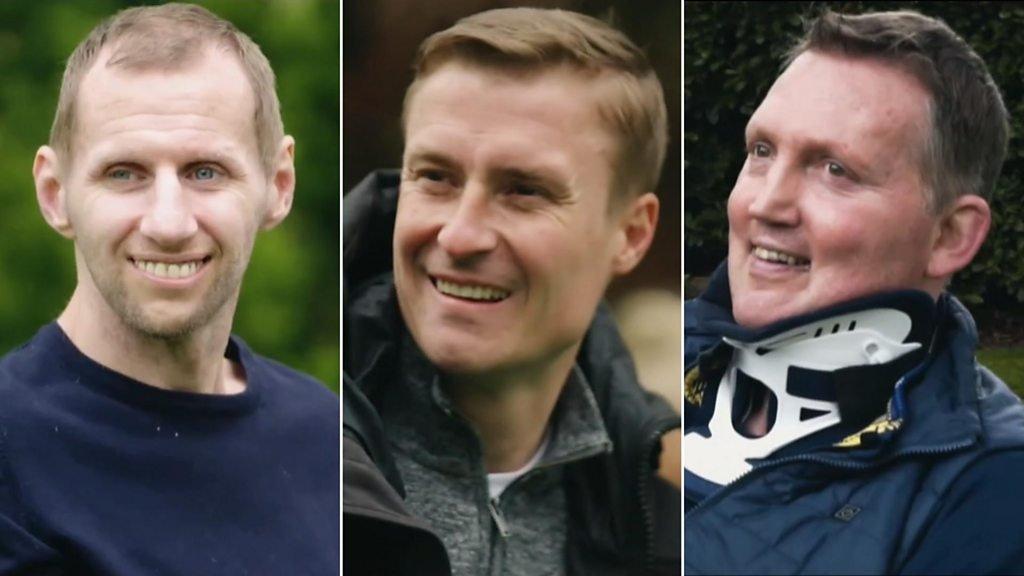Motor neurone disease: Campaigners call for £50m research funding
- Published

Ex-rugby players Rob Burrow and Doddie Weir and former police chief Chris Johnson were among those who signed the letter handed in to Downing Street
An open letter signed by hundreds of people with motor neurone disease (MND) has been handed in to Downing Street.
It urges the government to inject £50m into targeted research over five years.
Among those who signed the letter were ex-rugby players Rob Burrow and Doddie Weir and former West Midlands assistant chief constable Chris Johnson.
The government said it was currently working with the MND research community on ways to significantly boost further research.
The letter, external said the government's investment of less than £5m a year into MND research was "insufficient for a disease of this nature".
It said life-saving treatments were closer than ever before, and that scientists had proposed co-ordinated action across research centres in a bid to accelerate treatments.
The condition affects the brain and nerves, eventually stopping muscles functioning. There is currently no known cure.
Chris Johnson, 54, retired in September 2020 after 29 years with West Midlands Police.
He stated it had meant "a huge amount" to be at Downing Street because he had "got to meet some great people".
But he added: "What this really means to me being here is that I hope that I have been able to bring the voice of MND sufferers to those that are in power."
Mr Johnson, from Bromsgrove, in Worcestershire, was diagnosed with the condition in 2018, six months after being promoted to assistant chief constable..
On Tuesday he stated he was "very upbeat, very positive and keen to keep busy".

Mr Johnson was diagnosed in October 2018 and has helped raise awareness of the disease
The former senior police officer said he had deteriorated, but added: "I honestly feel really blessed."
Mr Johnson said: "I've had three years past my diagnosis and I wasn't expecting that much. It's been just great to see another Christmas, children's birthdays."
The open letter says the disease will "kill one in 300 people" and the "current piecemeal and protracted approach of funding individual projects will not deliver the life-saving treatments we need".
"Motor neurone disease doesn't discriminate, whether it's age, whether it's religion, whether it's around your nationality, it truly is a disease for everybody," Mr Johnson said.
"People who are diagnosed with MND, the vast majority will sadly pass away from that disease within 18 months to two years.
"We think... with government support, with scientific support... for the next generation this can make MND a treatable disease."
A Department of Health and Social Care spokesperson said it recognised "the immense challenges" faced by those living with MND and their families and "that is why we are funding research and backing pioneering projects to find better treatments that will improve outcomes for patients".
The spokesperson added the National Institute for Health Research had invested more than £10m in MND research over the last five years.

Follow BBC West Midlands on Facebook, external, Twitter, external and Instagram, external. Send your story ideas to: newsonline.westmidlands@bbc.co.uk, external
- Published7 September 2021

- Attribution
- Published24 May 2021

- Published19 January 2021

- Published25 September 2020

- Published22 June 2019
